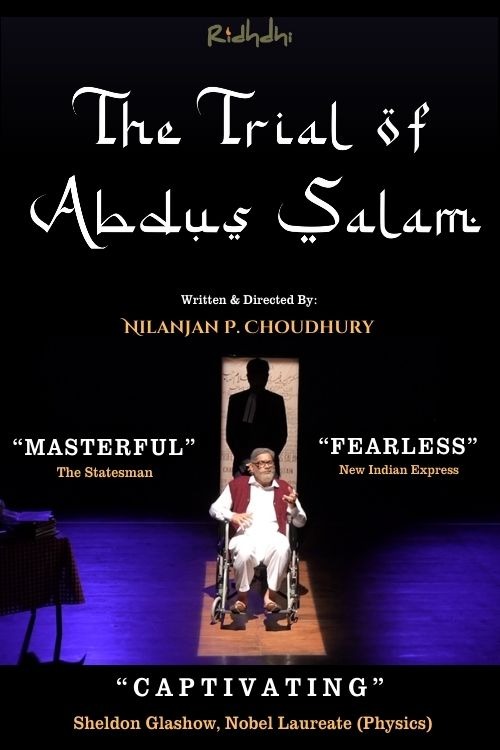THE TRIAL OF ABDUS SALAM


The First Muslim Nobel Laureate in Science
In 1979, Abdus Salam became the first Muslim to win the Nobel Prize in Physics for his contributions towards unifying the electromagnetic and the weak nuclear forces. This culminated in the Standard Model of particle physics, a theory that has yielded profound insights into the nature of the physical world and till date, represents our deepest understanding of the universe, that has passed the test of experimental verification.
A devout Muslim, Abdus Salam had repeatedly emphasized the crucial role that Islam had played in the shaping of his science, his life, and his vision. A vision that was inspired by the surahs of the Quran which spoke to him of a deep fundamental unity amongst all things and all peoples. A vision that he realized not only through his work towards the unification of the fundamental forces of nature but also through his creation of the International Centre of Theoretical Physics (ICTP) in Trieste, Italy – which is today a welcoming home for scientists from all across the world and a precious gift of the intellectual freedom, community and resources, vital for the advancement of human knowledge.
Yet during his lifetime, this grand unifier of forces and people was ostracized as a heretic and a traitor and today he lies buried in a desecrated grave in Pakistan, the land of his birth.
“The Trial of Abdus Salam” is an imagined courtroom drama that explores the genius, faith, trials and triumphs of one the greatest scientific geniuses to have emerged from the continent of Asia..
An imagined courtroom drama that reveals the tragedies and the triumphs, the wit and the wisdom and the life and works of this scientific giant from the subcontinent, who lies buried next door, isolated and unacknowledged in the land of his birth.
PRAISE FOR THE PLAY
“A captivating tale about a uniquely gifted scientist.” – Sheldon Glashow, Harvard University, Nobel Laureate (Physics), 1979
"A powerful play, masterfully conveyed ... riveting & rip-roaringly witty" - The Statesman
"A taut confrontation...elevated by its fearless embrace of science." - New Indian Express
